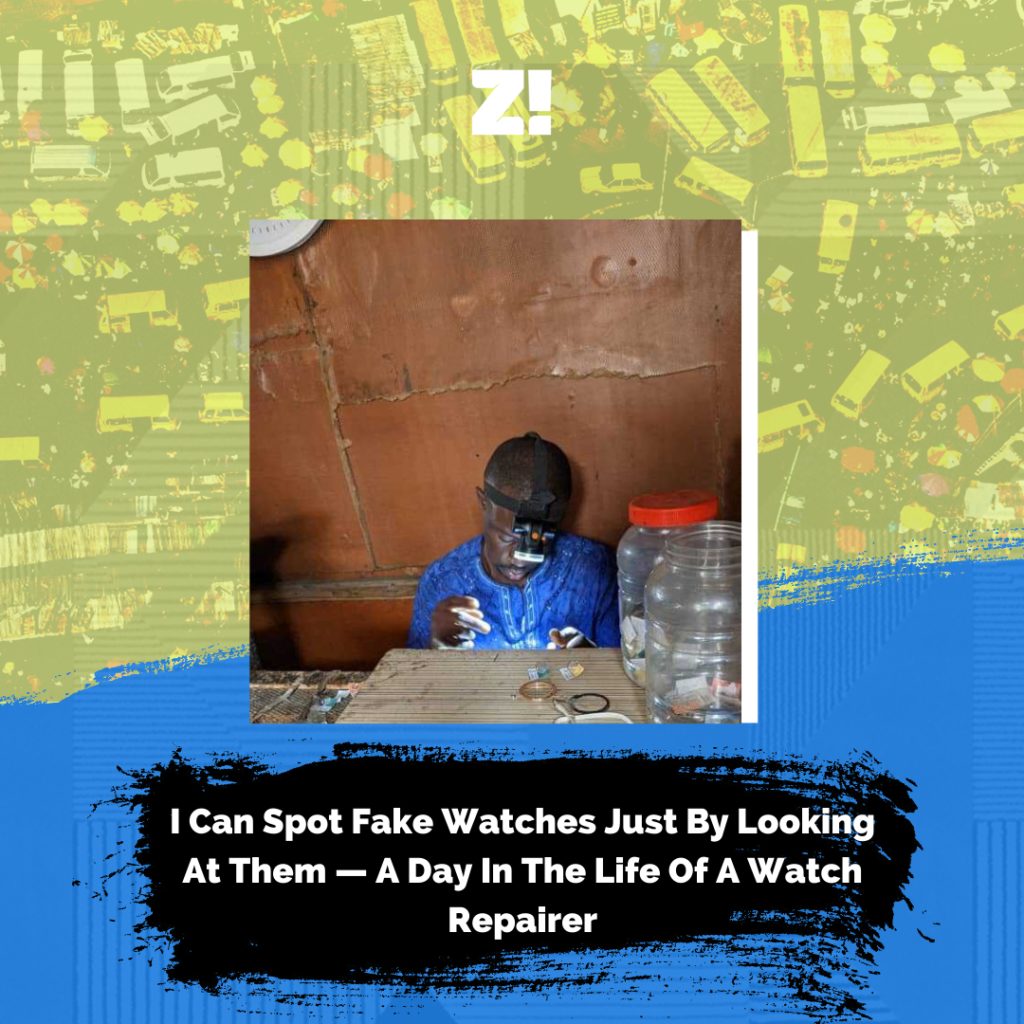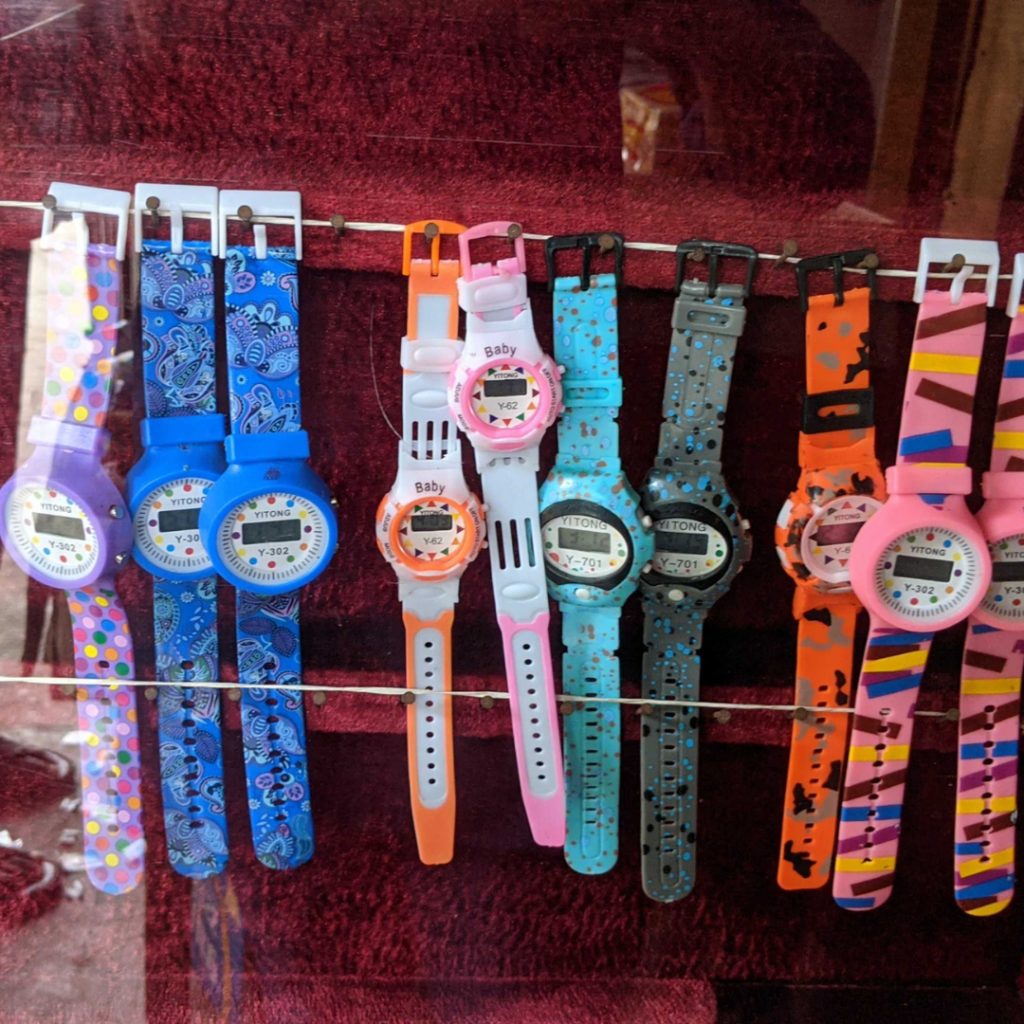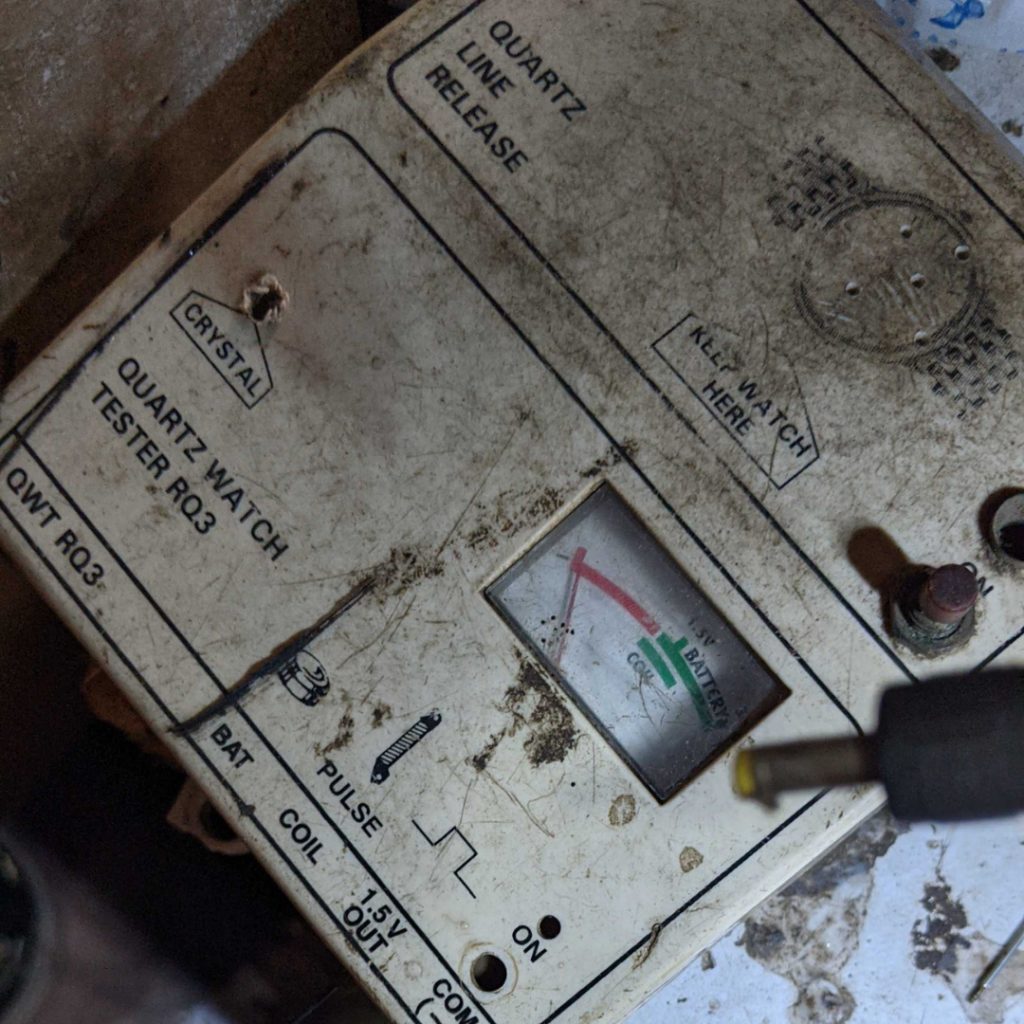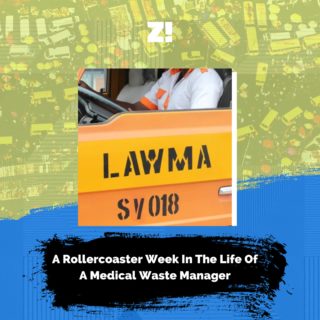A Week In The Life” is a weekly Zikoko series that explores the working-class struggles of Nigerians. It captures the very spirit of what it means to hustle in Nigeria and puts you in the shoes of the subject for a week.
The subject of today’s “A Week In The Life” is a horologist. Horologists repair watches and clocks, and their job requires patience, focus/precision and very specific technical knowledge. This knowledge is usually learnt in informal settings like apprenticeships or through word of mouth.
With almost 10 years of experience, our subject tells us about being able to fix any watch, spotting fake watches, and takes us through one day in his life.

I pack my office keys, wallet and phone as I’m leaving the house. Halfway out, I turn back to pick an umbrella and a nylon that I stuff into my pockets.
Some days it rains heavily, some days the sun shines bright. You never know what Lagos will throw at you.
Regardless of the weather condition, my oga expects punctuality, so I resume my watch repairing job on or before 8:00 a.m. every day. I head to my oga’s shop inside the Onipanu market of Lagos. From my house, it takes me one bus and a 10-minute walk to reach the shop. I like the location of the shop because people are always passing the market so they can easily see us.
Sometimes, I find customers already waiting for me. Other times, it’s just me in the shop with my watches and soft music playing in the background.
No matter the kind of day I get, I embrace it. Today can be good and tomorrow bad or vice versa.
I set down my unused umbrella, shine my phone torchlight and struggle with my office padlock at exactly 8:00 a.m. From when I resume till 9 p.m., I’m either changing watch batteries or making general repairs. I can fix anything as long as it’s not a digital watch and you give me enough time to source the parts. But customers are never patient; they want their watch fixed immediately as if this job is sorcery. If you rush to fix their watch, it’s the same customers that will come back and shout at you when it stops working. So it’s just best I take my time.
I need customers today because yesterday was sort of slow, but this morning isn’t any better. I keep checking the clocks in my office. For the first two hours, the shop is empty.
That’s why I’m happy at 10 a.m. when an elderly man comes in asking if I can fix his watch. I pause for a minute and study the watch.
This work is not only about fixing watches. Customer satisfaction too dey inside. I always watch my client’s moods and gauge their reaction before saying anything. And I don’t talk too much. There are some customers who brag about the price of their watch, and I know it’s fake once I look at the chain or the engine. But I never say anything. I just face front and fix their watch.
The watch in front of me is an expensive Swiss model, so I tell the customer I need some time to fix it. Unlike a Chinese watch, I need a clear head to fix a Swiss. Misplacing one screw alone can affect the engine function and each screw costs about ₦12,000. This watch has 5. After fixing the watch, I plan to also clean and tighten the strap so it feels brand new.
I see the customer weigh his options before deciding to drop the watch. I just hope that the extra effort and attention to detail makes him a repeat customer.
By 12 p.m., more customers troop in. My oga is not around, and I’m the only one in, so I try to work as fast as possible.
First, someone brings a Seiko watch that needs fixing. I test the batteries with a battery tester and notice it’s the batteries that need changing. I charge them ₦300 for a replacement. Then, another person brings a Citizen watch with a slow seconds hand. I diagnose the problem, uncouple the watch and file off a few parts. Also, there’s a mother here to replace a watch she bought the other day. Why? Both she and her daughter struggle with setting the time when I’m not there. Then a customer comes in with a chain watch bigger than his wrist. One drill, two removed linking chains and a couple of nairas later, his watch fits perfectly.


It’s 6 p.m. when the last customer finally leaves. Even after 9 years and 10 months on this job, the busy days still leave me breathless. Yes, the work is hard; it requires precision, patience and focus, but I’ll have it no other way. Before this job, I worked as a welder. I also sold animals. My boss, who I call my egbon, trained and introduced me to this work and I haven’t looked back. Apart from the plenty standing and sitting in one place and impatient customers, I love the job. More than anything, repairing watches makes me feel like I’m solving problems and making people’s lives easier. That feeling alone is priceless. Hopefully, one day, I’ll start my own repair shop. But for now, I’m not interested in that because I’m learning every day under my egbon.
I still have enough time to fix the Swiss watch from this morning. It should take about two hours which means I’ll be done around 8:00 p.m. I’ve tried today, so I can close early. I just need to finish with this watch, then it is home sweet home.
Check back every Tuesday by 9 am for more “A Week In The Life ” goodness, and if you would like to be featured or you know anyone who fits the profile, fill this form.




